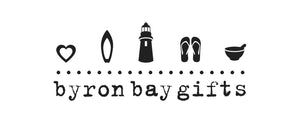Chocolate is one of the most popular and loved sweet treats around the world. It’s loved in all sorts of shapes and sizes - bars, candy, spreadable chocolate, chocolate syrup… you name it. Everything that is made out of chocolate leaves most of us wanting more. But, how did this incredible dessert come to life? Who was the genius that decided to create it? Chocolate had an incredible journey throughout our history, ending up in modern times where it's still favoured among sweet-toothed aficionados looking for candied satisfaction.
Cacao seeds grow naturally on trees, so it wasn’t long until the ancient populations in Mesoamerica, where it all began, discovered the taste and properties of cacao. Chocolate started being consumed as a liquid, a drink made out of cacao seeds where spices and even wine was added; giving it a rather bitter taste and not the sweet one we all know and love. It was believed that this beverage had aphrodisiac properties, a story that that still persist today but is yet to be proven. In the 16th century, the primordial chocolate reached Europe, where sugar was added to the mixture. The higher classes to consumed it at first, but it soon reached the ‘common’ people, who enjoyed it as well. The word “chocolate” comes from “chocolātl”, which is Classical Nahuatl, the language of the Aztecs.
Chocolate had an incredible journey throughout our history, ending up in modern times where it's still favoured among sweet-toothed aficionados looking for candied satisfaction.
Between the 17th and 19th century, the craze for chocolate expanded, as the Europeans, more precisely the French, English, and Dutch, created colonies and started planting cacao trees to harvest the much-needed beans. But, it was during the Industrial Revolution that chocolate started to get the shape and taste we're now familiar with. In 1815, Coenraad van Houten, who was a Dutch chemist, decided to incorporate alkaline salts into the composition of chocolate. This process really diminished its initial bitterness. In 1828, the chemist created a special press that managed to remove approximately half of the butter chocolate contained, helping it reach a quality that was more consistent.
It was during the Industrial Revolution that chocolate started to get the shape and taste we're now familiar with.
From this point on, it was only one more step to the creation of modern chocolate. In 1847, Joseph Fry took the pressed “Dutch cocoa”, as it was called, and added the melted cacao butter to it, creating a moldable form of chocolate. And in 1879, Rodolphe Lindt, the creator of the chocolate with the same name, brought the final touch to modern chocolate with his conching machine, which improved the taste and texture of chocolate by mixing chocolate evenly with cocoa butter. Even so, beverages with chocolate were still popular, with milk being added since the 17th century, to improve their taste. But it was in 1875 when milk chocolate appeared, with Daniel Peter mixing chocolate liquor with powdered milk, created by Henri Nestlé.
So, civilization has been fascinated by chocolate since the beginning of times, working hard and using innovation to improve the properties of this amazing dessert. Today, there are so many assortments of chocolates available; we can indulge in any we like!
A Short History Of Chocolate

